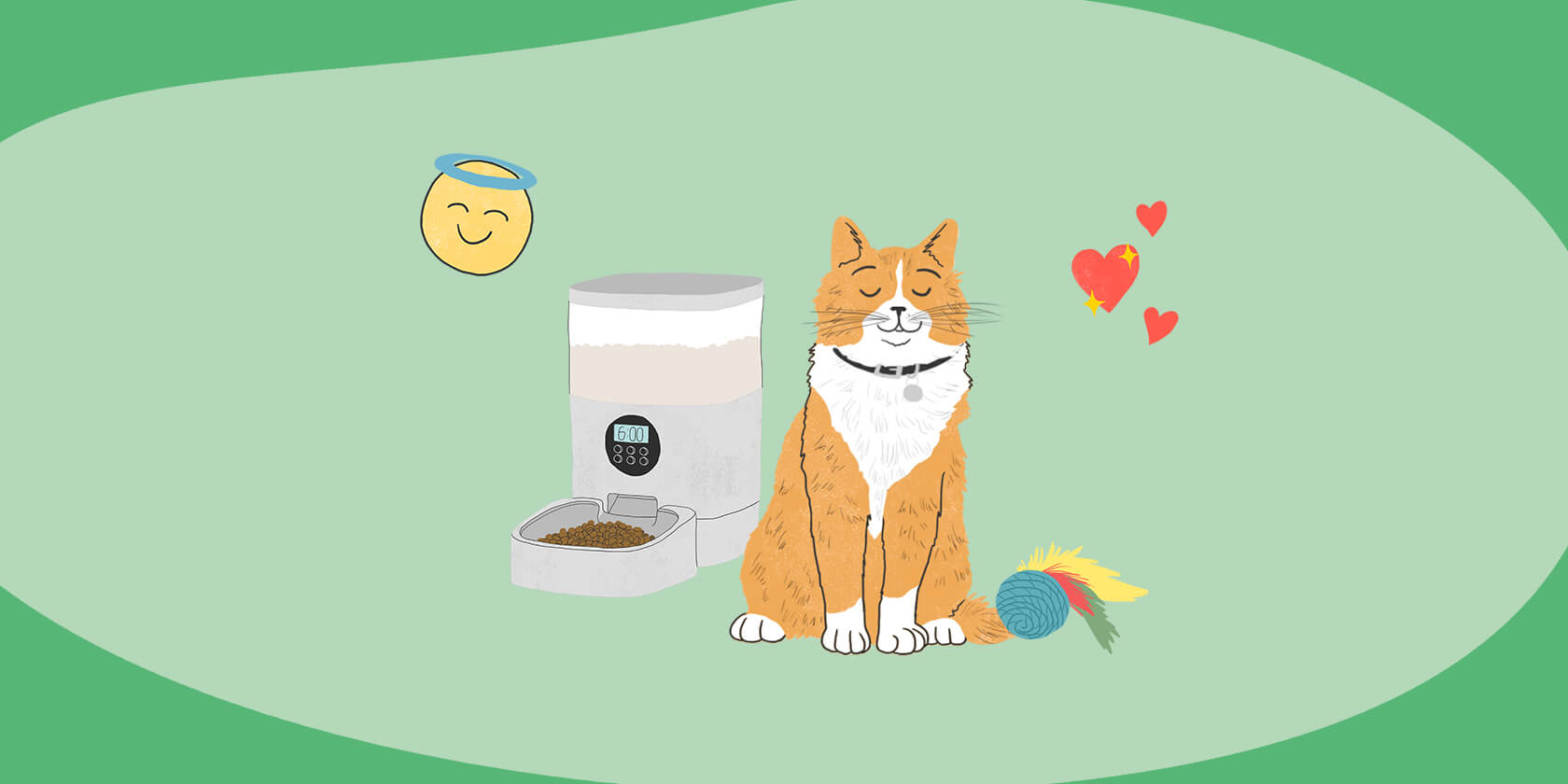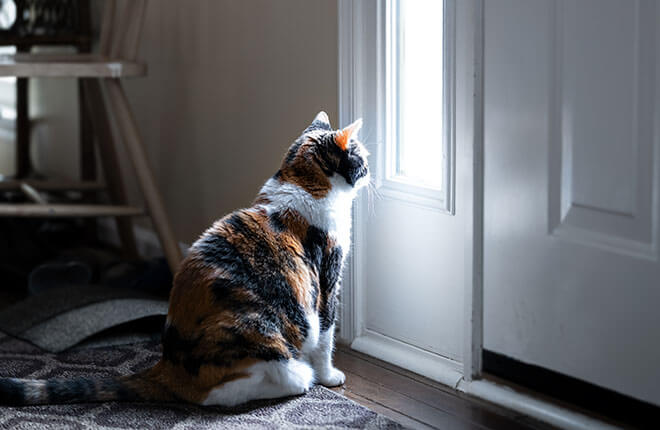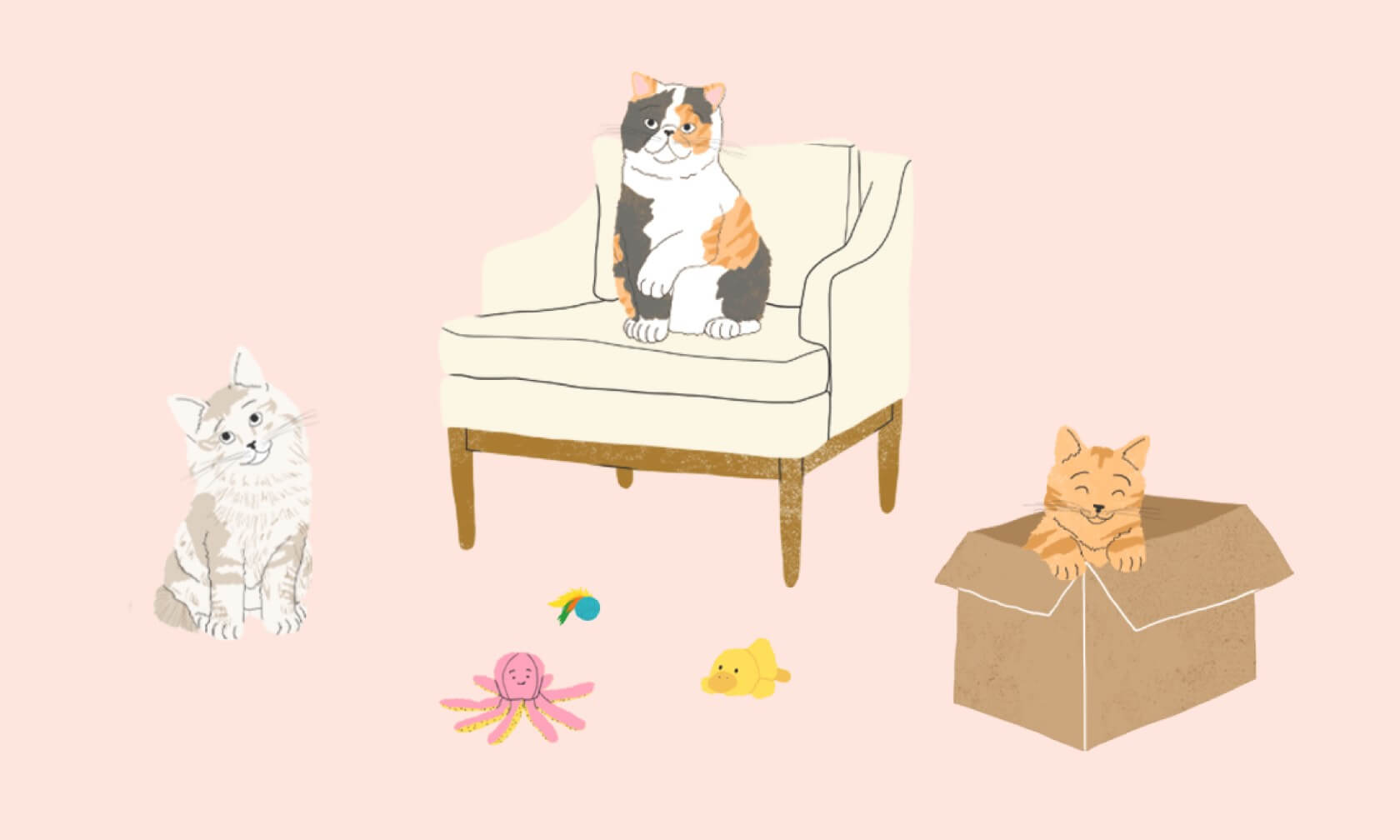Cats have a reputation for being low maintenance and easy to take care of. Whether that’s true or not is up for debate, but it does lead to some questions and misconceptions about leaving cats alone for a day, weekend, or longer. There’s a lot to consider when deciding to leave your cat alone and it’s not a decision that should be taken lightly. But by understanding the factors you cannot control just as much as the factors you can control, you can take steps to ensure your cat is safe when left alone.
What Your Cat Needs Every Day
Like any living creature, your cat has essential needs that must be met every day. There are also other things that we as responsible pet owners do our best to provide daily. As you’re thinking about how long your cat can be left alone, it’s critical to consider if and how you can meet these daily needs while you’re away.
- Food. If you feed dry food, your cat should ideally get a fresh supply every day. Wet or canned food has fewer preservatives than dry food, and therefore shouldn’t be left out for more than a few hours.
- Water. Whether your cat drinks from a bowl or pet fountain, they need constant access to fresh water (and that water should ideally be replaced each day). Cats can become dangerously dehydrated very quickly if water isn’t available.
- A clean litter box. To keep your cat happy and going to the bathroom where they should, a clean litter box is essential. Cleaning the litter box at least once a day is the best way to avoid unwanted messes.
- Enrichment and structured play. Giving your cat adequate playtime and access to food puzzles and other brain-engaging games is vital to their well-being. In fact, in cases of stress, anxiety, fear, or other behavioral issues, opportunities for enrichment and play are part of the treatment plan. They give your cat an outlet for those hunting instincts coded into their DNA.

What You Can Control When Leaving Your Cat Home Alone
How can you provide everything your cat needs in a day if you’re not around? There are products available to help with some daily needs, while a human being like a friend or cat sitter is necessary for others. It is important to determine your personal comfort level with automated help versus having someone come by to check on your cat. You must also consider how long you can rely on these helpful products or people to do their job well. But what matters most is how long your cat can thrive in a particular solo situation. Here are some potential challenges you’ll need to plan for along with a few helpful tips.
- Food. There are automatic food dispensers on the market for both dry and wet food. The wet food versions include cold packs to keep things cool and safe for consumption for a limited amount of time. But you’ll need to look closely at how they work, whether your cat might be able to break into them, and whether they can reliably perform the entire time you’re planning to be away. With something as important as food, relying entirely on an automated feeder can be risky.
Alternatively, you could leave a large amount of dry food out for your cat. But you risk them overeating or even finishing off their food before you return. The safest bet is to have someone stop by and feed your cat once or twice a day.
- Water. Fresh water is essential. Cats will often steer clear of water that’s been out for too long, which may be due to their wild ancestors avoiding still water for fear of contamination. There’s also the risk of your cat tipping the water bowl over, leaving them without water altogether (even specialized gravity-fed water bowls can spill). The safest option is to have someone make sure your cat has plenty of fresh, clean water each day.
- Litter box. Your options are a bit more limited here. Some owners use automatic-scooping litter boxes, but things can still get messy depending on where and what your cat deposits and even these litter box types still need general cleaning. You might think that simply adding more litter boxes will do the trick, but that’s not a guarantee. In fact, many cats don’t like a lot of change in the litter box department. Even if they use the extra boxes, they might just fill them up equally and still face the same unappealing situation of dirty boxes. Having human help makes all the difference in keeping litter boxes clean.
- Enrichment and structured play. There are toys, puzzles, and electronic play items that you can safely leave out for your cat. While self-play isn’t always as fulfilling as a good “prey sequence” play session with you, your cat can keep their body and mind active while you’re gone. If your cat is comfortable with other people, having a friend or sitter stop by for some structured playtime would be ideal.
- Visual and audio monitoring. There are many products available to keep eyes and ears on your cat. Cameras, baby monitors, and other devices can connect or be accessed virtually. This can provide some reassurance in tracking your cat’s activity. However, monitoring from a distance without any ability to physically intervene is no substitute for having someone visit on site each day.
What You Cannot Control When Leaving Your Cat Home Alone
Even if you can comfortably control the essential factors during your absence, many things are completely out of your control — accidents, random events, and bad cat behaviors. Here are a few things to keep in mind.
- Emergencies. Some medical emergencies come on very quickly in cats and can be fatal if not treated right away. Signs like difficulty breathing, inability to urinate, excessive vomiting, and severe lethargy and/or collapse are serious and won’t be caught if your cat is left entirely alone.
- Medications. If your cat has existing medical conditions, make sure you discuss with your veterinarian and have a plan in place to make sure your cat receives their medications consistently and reliably without any missed doses. Simply put, almost every single medication requires a human to administer. In addition, a disrupted routine or new faces in the house can make your cat even more difficult to medicate.
- Injuries. Cats may land on their feet most of the time, but that doesn’t mean they can’t get hurt. Cats can slip or twist the wrong way and unsecured furniture is always at risk of falling over. Injuries happen, even indoors.
- Mischief. A bored cat can get up to all kinds of things. Has your cat ever locked themselves in a closet or pushed the bedroom door shut? A quick move made out of boredom can trap your cat without access to food, water, or the litter box. Not to mention the potential for damage to your home if your cat creates their own fun. Even worse, your cat may get into toxic substances, like cleaning products and human medications, which may lead to a medical emergency.
- Chewing and swallowing. Cats often ingest things they shouldn’t. Big offenders include string or ribbon, houseplants, electrical cords, and pieces of their toys that come loose. There’s a lot your cat can chew on or swallow that is not only dangerous to them but can also damage your home.
Pet owners can and do leave their cats alone for modest periods of time with careful planning and preparation. It is extremely important to consider not only your cat’s essential needs, but how those needs will be met fully and consistently while you’re away. Every pet owner must make their own decision about how long they feel comfortable leaving their cat alone, based on their particular situation and their cat’s needs. Most pet professionals recommend that you have someone come by to care for your cat once or twice a day while you’re gone. With so many things out of your control, that old philosophy “better safe than sorry” holds true. If you have any questions or need advice, it is best to talk things through with your veterinarian.
ZPC-01275R1



